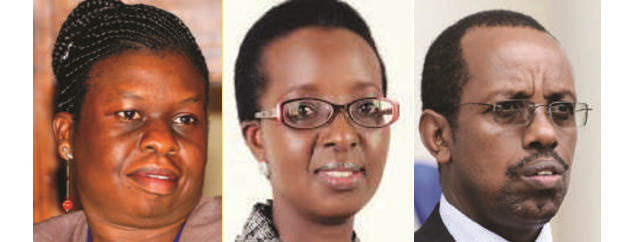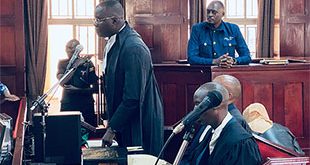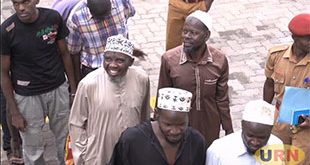
Kadaga referred to the order as an attempt to gag and prevent Parliament from doing its work. “I cannot accept a situation where a Court dictates how we shall speak in this House,” Kadaga said, “How we shall write the order paper? This order said we should not debate, we should not inquire, we should not investigate. That is unacceptable.”
Kadaga directed the Deputy Attorney General to move to Court immediately to vacate the ‘stupid’ Court Order.
Most importantly, critics say the biggest danger is the precedent the development sets. Others say the decision shows how President Museveni is likely to spend oil revenues.
Oil revenue management experts say that because oil revenue is always big, even 1% of an oil windfall could easily distort the economy.
They warn that when an excitable president begins dishing out small percentages out of huge chunks to thank oil executives for ‘exemplary service,” that action could also affect the mood of officials in other sectors who could feel unappreciated and yet they are doing great work for the country.
Fred Muhumuza, an economist who doubles as a researcher says it is wrong to deliberately interpret money in terms of percentages especially if it involves revenues from the extractives sector.
Oil money and natural resource revenues are rarely taxed like other goods and services because of the higher rates of revenue, Muhumuza told The Independent. He said that in some countries, taxes on extractives can go up to 85% because of the big moneys involved— knowing that even the 15% you have left with the companies is big money.
“If you look at Uganda’s anticipated annual oil revenues which could go up to $3 billion, if we get good rates and prices,” Muhumuza said, “Let us say you give away 1% of this $3 billion, do you see how you are giving away huge sums of money to whomever?”
Muhumuza also warns that the recent presidential handshake could set a precedent.
“You can now not rule out that when oil money begins to flow, those people dead and alive will now come back and say, we contributed towards the discovery or the drafting of good PSAs in 2007 quoting a precedent,” the economist told The Independent. “You will also find other people doing exemplary work for the government coming to ask for bonuses.”
Muhumuza insists there is need for the government to institute a bonus policy.
“Without a policy,” he says, “it is wrong to distribute Consolidated Fund money because you have had a discussion with the President.”
He explains that in the private sector, where these bonuses are implemented, there is a policy in terms of the amount, who qualifies and you want to recognise exemplary service.
“Let us know under what conditions people qualify for the bonus,” he said, “what’s the size of the bonus and how do you arrive at the subdivisions of the bonus.”
Other critics have problems with the legal justifications.
“Yes, the law provides for it but under the current economic situation that Ugandans are going through, it is extremely wrong to reward these government officials,” says Cissy Kagaba, the executive director of the Anti-Corruption Coalition Uganda (ACCU), “This is Shs 6b which could do wonders to the lives of ordinary Ugandans. This Shs 6b could stock hundreds of health centres with essential medicines.”
Kagaba says the reason why these officials are paid large sums of money is to safeguard against bribes. “If these people were earning Shs 3m,” Kagaba said, “you could say they can easily be compromised but they are taking home Shs 40m and above, exclusive of other benefits they get.”
Kagaba insists oil money should be used for the benefit of all Ugandans not just for the benefit of a few people who are already earning a lot of money. Otherwise, she says, the gap between the rich and the poor will grow wider which could potentially cause political instability in the country.
Apart from these concerns, activists also say that the presidential handshake only makes it clear that transparency in the oil sector remains elusive.
“If it were not for a disgruntled official,” Kagaba said, “the public would never have known about this money, which was given.”
Dr. Frederick Golooba Mutebi, a regional researcher and analyst also told The Independent that the money involved comparatively speaking is “little.”
However, he also adds that although he is not against the principle of rewarding good performance, he does not know what exactly the winning team did to merit the reward.
 The Independent Uganda: You get the Truth we Pay the Price
The Independent Uganda: You get the Truth we Pay the Price



